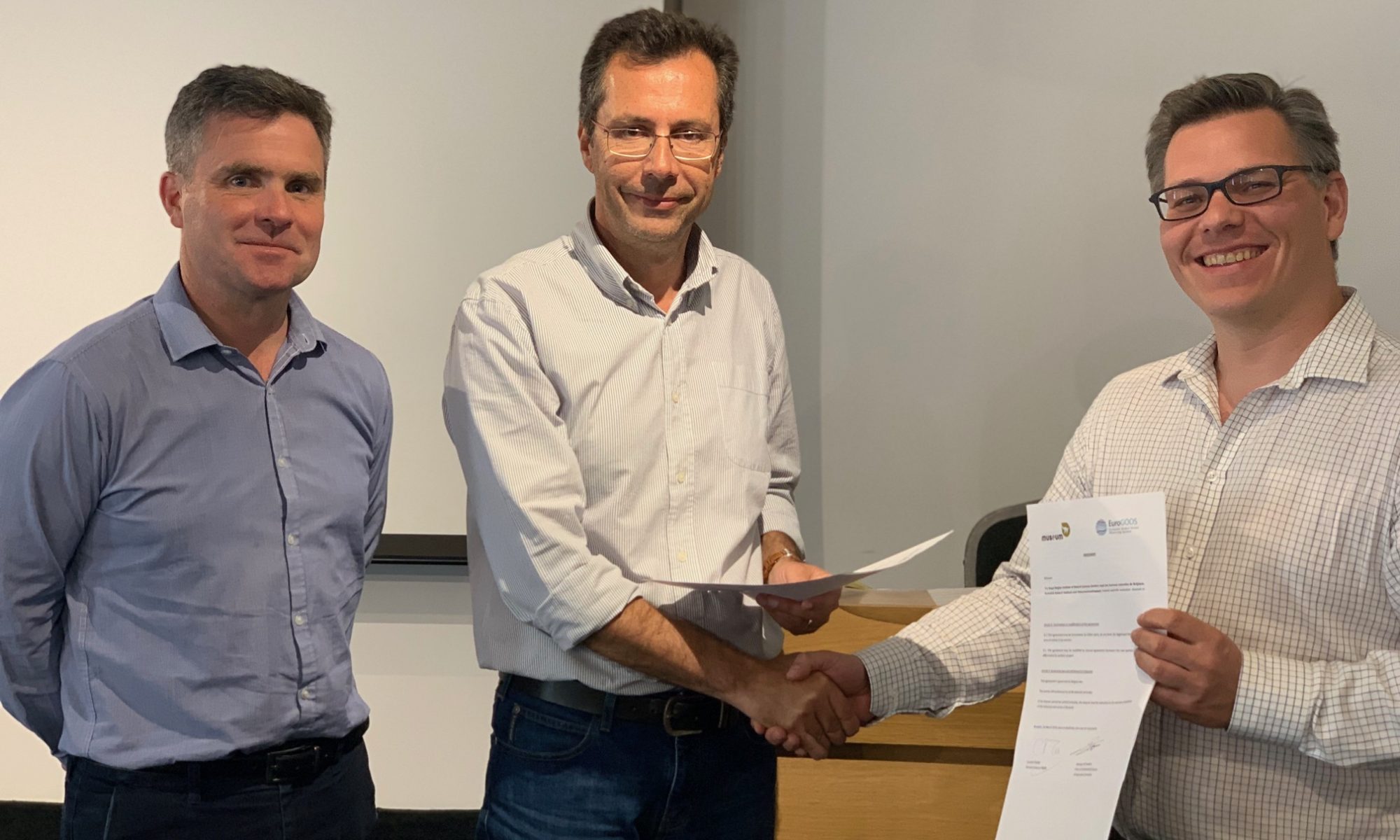EuroGOOS is the European component of the Global Ocean Observing System of the Intergovernmental Oceanographic Commission of UNESCO (IOC GOOS). The EuroGOOS Secretariat is located in Brussels, serving 44 members and supporting five regional systems in Europe. The Royal Belgian Institute of Natural Sciences (RBINS), and in particular its Marine Forecasting Centre, is one of these members and is involved in the North West Shelf Operational Oceanographic System (NOOS).
EuroGOOS identifies priorities, enhances cooperation and promotes the benefits of operational oceanography to ensure sustained observations are made in Europe’s seas underpinning a suite of fit-for-purpose products and services for marine and maritime end-users.
EuroGOOS working groups, networks of observing platforms (task teams), and regional systems (ROOS), provide for a for cooperation, unlock quality marine data and deliver common strategies, priorities and standards. The many EuroGOOS networks work towards integrated, sustainable and fit-for-purpose European ocean observing, underpinning the EOOS (European Ocean Observation System) framework.
EuroGOOS General Assembly – New Relevance, New Strategy
On 8 and 9 May the EuroGOOS General Assembly met in Heraklion, hosted by the Hellenic Centre for Marine Research and George Petihakis, EuroGOOS Chair. EuroGOOS strategy and integration were the main themes on the agenda. The meeting was attended by EuroGOOS members and the chairs of the EuroGOOS activities (working groups, infrastructure task teams, and the regional systems – ROOS).
The Assembly discussed the evolution of the organization and brainstormed on the next EuroGOOS strategy 2020-2030. The brainstorming was done through an interactive session in a World Café around four major areas of the strategy: high-level priorities, challenges, partnerships, and national benefits and advocacy. The results of this brainstorming will be transformed into the strategy and an accompanying roadmap, with the first draft prepared in the summer. The upcoming OceanObs’19 conference will further feed into the strategy preparation.
The Assembly also discussed ways to achieve a better integration between the variety of EuroGOOS activities. EuroGOOS task teams (networks of ocean observing technologies) and working groups (on science, technology, data integration and coastal ocean) are delivering best practices and state of play analysis, while the EuroGOOS Regional Operational Oceanographic Systems (ROOS) deliver regional coordination. At the end of 2019, EuroGOOS will host an integration workshop bringing all those activities together, to brainstorm and agree on steps to activate the new EuroGOOS strategy, and on the support needed from the EuroGOOS office.

New members, new hosts
At the formal part of the meeting, the Assembly approved and warmly welcomed three new members to EuroGOOS: SHOM (France), PLOCAN (Spain) and NIVA (Norway). Representatives of these organizations showcased their activities and future contributions to EuroGOOS, spanning technological development, observing integration, ocean monitoring, and ocean literacy. The Assembly also elected a new member to the Executive Directors Board – Holger Brix of the Helmholtz-Zentrum Geesthacht in Germany. Two Executive Board members stepped down upon the completion of their full mandates – the Assembly thanked Urmas Lips (Tallinn University of Technology, Estonia) and Bernd Brugge (Federal Maritime and Hydrographic Agency, BSH, Germany) for their contributions to the work of the Board over the past six years. At the Assembly, Chair George Petihakis also signed the EuroGOOS office hosting agreement with the Royal Belgian Institute of Natural Sciences (RBINS), represented by Patrick Roose and Sebastien Legrand. RBINS will host the EuroGOOS secretariat in its Brussels offices (also housing the Belgian Museum of Natural Sciences) from the end of 2019.
Text: Dina Eparkhina (EuroGOOS), Kelle Moreau (RBINS)

